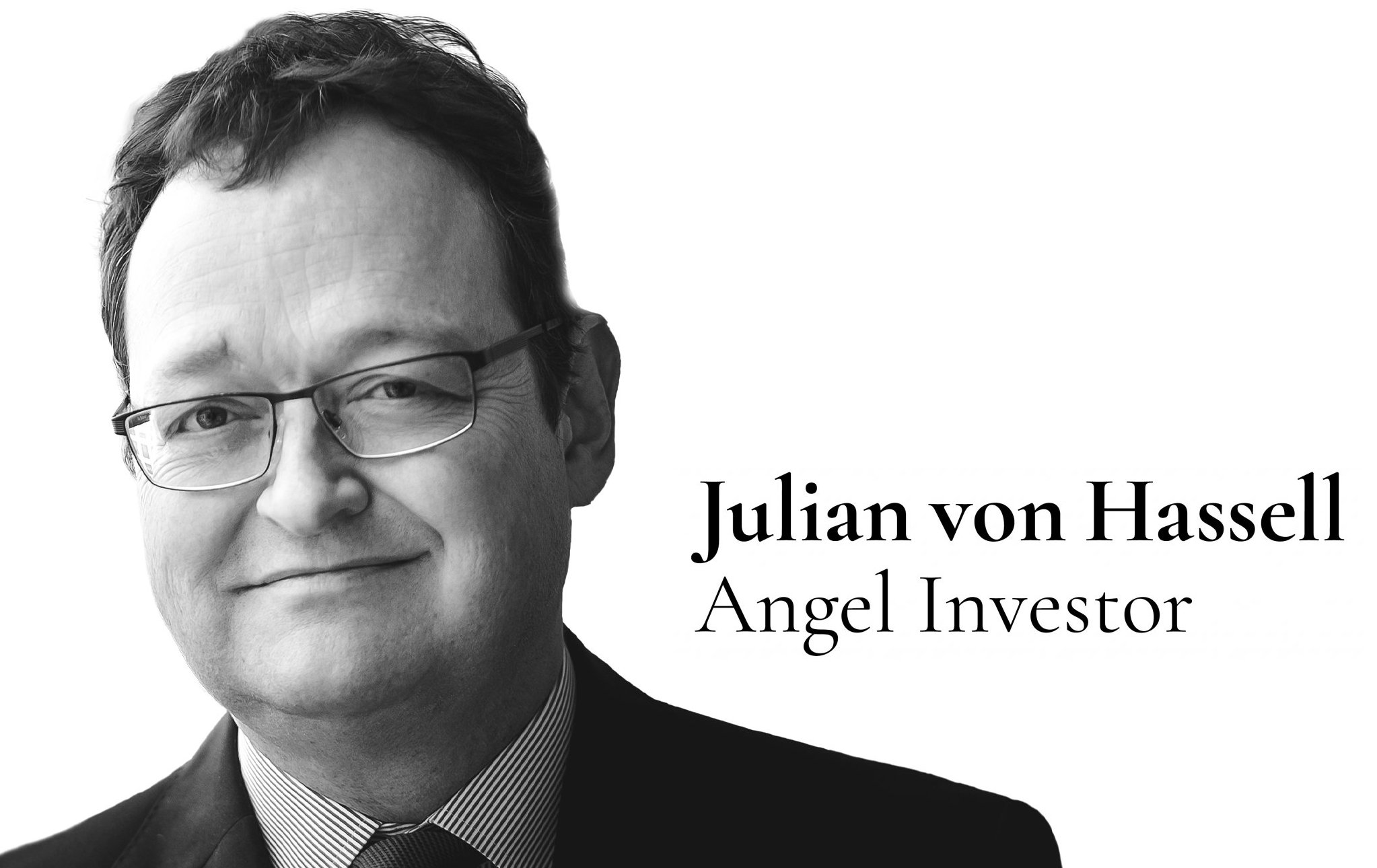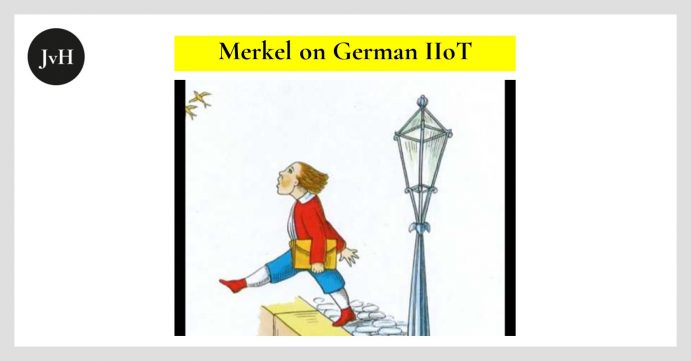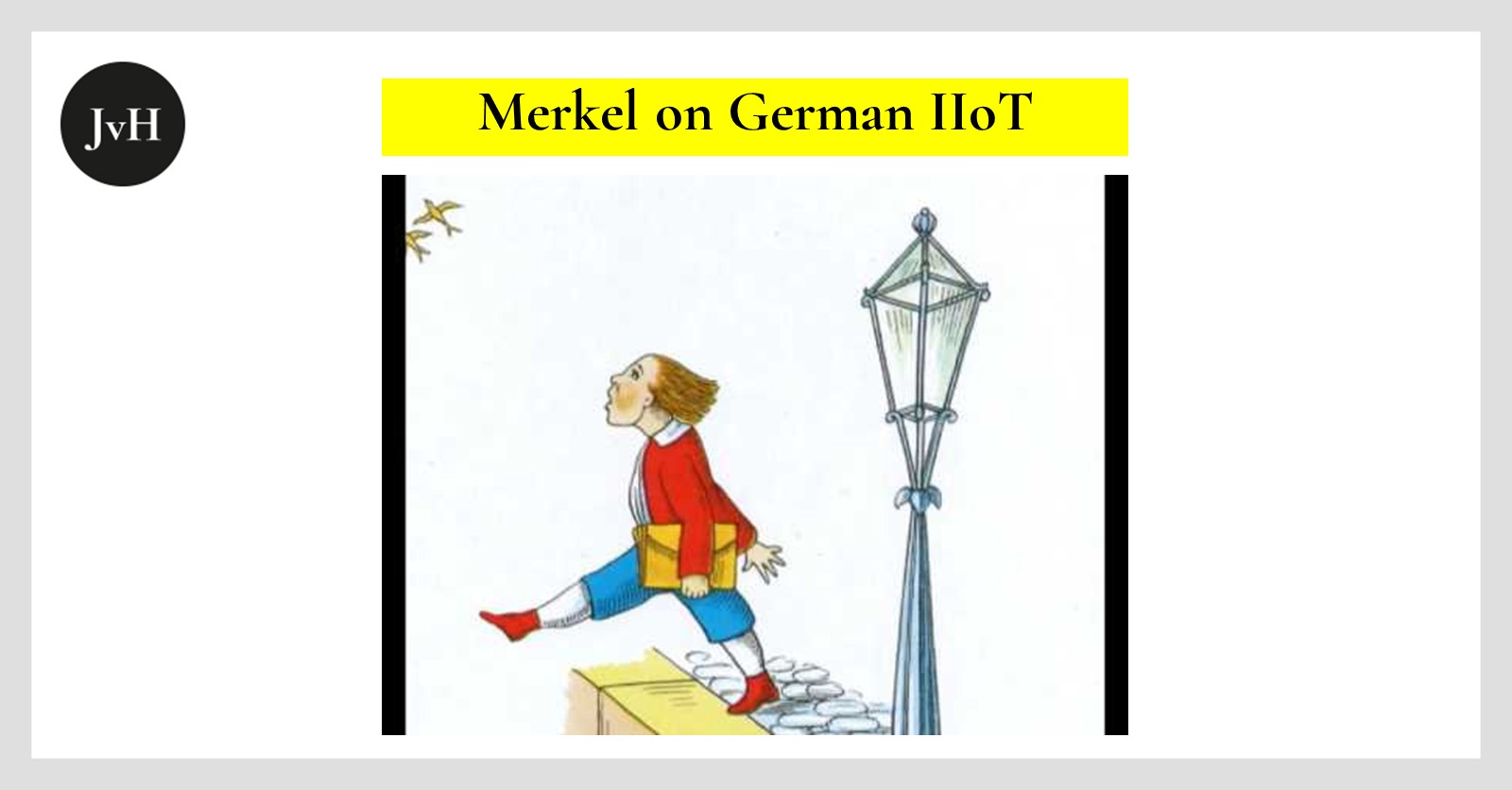I think Germany is lucky to have a physicist with some respectable track record as head of government. She is intrinsically motivated to push the country’s sadly lagging digital transformation and she does not like empty blab.
Despite that she needs to tread very carefully. One “wrong” word might result in disastrous political or industrial effects. In last Friday’s first edition of the digital newsletter ada (published by German weekly Wirtschaftswoche (a kind of German “The Economist”) Merkel was asked why Germany is lagging behind China and the Valley when it comes to AI and robotics:
“Are German companies not well enough prepared, or is German research not advanced enough?”
Merkel’s response (my translation):
“In basic research we have been active in all this for decades. Now we reached a point where computers are suddenly able to process very large amounts of data and at the same time algorithms have lately become capable to make use of them. But [in Germany] we haven’t been able to bring algorithms and data together as yet. However, we have a chance to catch up, especially so in the field of the Internet of Things. We should apply Artificial Intelligence to industrial production, a field where we are strong in Germany.”
The problem with this is that a considerable part of the production technology where Germany “is strong today” won’t be needed anymore once cars will have resorted to alternative drive technologies.
Today, Germany’s seemingly leading industrial infrastructure resembles the British after WW II. England was, at least until WW I (when America’s stellar rise began) the global industrial leader. After WW II she struggled with her old machinery, stretched budgets and ancient social infrastructure and ended way behind Germany very soon. Oxbridge and LSE did not help, because the industrial infrastructure was no adequate receptacle. A disastrous brain-drain and industrial clearing sales initiated by Margarete Thatcher were the dire consequences. However, parallel to this development, the British financial industry made use of its structural advantages, namely an excellent global reputation, the Commonwealth and a blue ocean of new technologies unhindered by structural sediments to become (or remain) one of the few global financial hubs. The UK, today, may not have many significant industrial assets by 20th century standards, but it does have considerable potential by 21st century standards. And Elon Musk just showed the world that automotive manufacturing facilities, which Germany prides itself of, can be setup overnight, if necessary in a desert and under the “roof” of a tent…
Germany’s digital infrastructure today is in an abysmal state, because Germany’s government under chancellor Helmut Kohl decided to enhance its old copper wires instead of investing in fibreglass. Germany’s financial industry and particularly its (late stage) start-up-funding infrastructure are also in a pathetic state of affairs, far more deplorable than the respective industries and infrastructures in the UK or e.g. in France. Why? Because big money was never in urgent need for Germany’s multi-faceted highly decentralised “Mittelstand” industrial landscape and Deutsche Bank, Dresdner Bank and Commerzbank were sufficient to look after Mercedes, Volkswagen and BMW.
The problem Germany is facing today with regard to IIoT is not a particular German problem. It is the fundamental dilemma of all pluralistic democracies and shareholder-dominated markets, namely that investments are hardly ever honoured by electorates or shareholders of the time. This is why China is globally in the lead in matters AI. Germany’s economy today still benefits from tough decisions taken by the government before Merkel rose to power. These were decisions which cost Merkel’s predecessor Gerhard Schröder his re-election and paved her way to power. Schröder was aware of that risk and therefore an outstandingly farsighted, atypical politician.
Seen from that angle, the present European crises, the global repercussions of Donald Trump’s voodoo economics and the increasing dominance of China are perhaps positive signals in the sense that they might prevent European and thus also German leaders from peacefully sailing into digital disaster. Merkel certainly is up to her job if she is allowed to do it.


